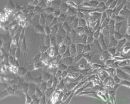(Press-News.org) Mice with many of the pathologies of Alzheimer's Disease showed fewer signs of the disease when given a protein-restricted diet supplemented with specific amino acids every other week for four months.
Mice at advanced stages of the disease were put on the new diet. They showed improved cognitive abilities over their non-dieting peers when their memory was tested using mazes. In addition, fewer of their neurons contained abnormal levels of a damaged protein, called "tau," which accumulates in the brains of Alzheimer's patients.
Dietary protein is the major dietary regulator of a growth hormone known as IGF-1, which has been associated with aging and diseases in mice and several diseases in older adults.
Upcoming studies by USC Professor Valter Longo, the study's corresponding author, will attempt to determine whether humans respond similarly – while simultaneously examining the effects of dietary restrictions on cancer, diabetes and cardiac disease.
"We had previously shown that humans deficient in Growth Hormone receptor and IGF-I displayed reduced incidence of cancer and diabetes. Although the new study is in mice, it raises the possibility that low protein intake and low IGF-I may also protect from age-dependent neurodegeneration," said Longo, who directs the Longevity Institute of the USC Davis School of Gerontology and has a joint appointment the USC Dornsife College of Letters, Arts and Sciences.
Longo worked with Pinchas Cohen, dean of the USC Davis School, as well as USC graduate students Edoardo Parrella, Tom Maxim, Lu Zhang, Junxiang Wan and Min Wei; Francesca Maialetti of the Istituto Superiore di Sanità in Rome; and Luigi Fontana of Washington University in St. Louis.
"Alzheimer's Disease and other forms of neurodegeneration are a major burden on society, and it is a rising priority for this nation to develop new approaches for preventing and treating these conditions, since the frequencies of these disorders will be rising as the population ages over the next several decades," said Cohen, who became dean of the School of Gerontology in summer 2012. "New strategies to address this, particularly non-invasive, non-pharmacological approaches such as tested in Dr. Longo's study are particularly exciting."
The results of their study were published online by Aging Cell last month.
The team found that a protein-restricted diet reduced levels of IGF-1 circulating through the body by 30 to 70 percent, and caused an eight-fold increase in a protein that blocks IGF-1's effects by binding to it.
IGF-1 helps the body grow during youth but is also associated with several diseases later in life in both mice and humans. Exploring dietary solutions to those diseases as opposed to generating pharmaceuticals to manipulate IGF-1 directly allows Longo's team to make strides that could help sufferers today or in the next few years.
"We always try to do things for people who have the problem now," Longo said. "Developing a drug can take 15 years of trials and a billion dollars.
"Although only clinical trials can determine whether the protein-restricted diet is effective and safe in humans with cognitive impairment, a doctor could read this study today and, if his or her patient did not have any other viable options, could consider introducing the protein restriction cycles in the treatment – understanding that effective interventions in mice may not translate into effective human therapies," he said.
Many elderly individuals may have already be frail, have lost weight or may not be healthy enough to eat a protein-restricted diet every other week. Longo strongly insisted that any dieting be monitored by a doctor or registered dietician to make sure that patients do not become amino acid deficient, lose additional weight or develop other side effects.
###
This research was funded in part by NIH Grant P01AG034906. END
Low-protein diet slows Alzheimer's in mice
Cycles of a normal diet and protein restriction improved memory and slowed the advance of the disease
2013-02-14
ELSE PRESS RELEASES FROM THIS DATE:
The world's most sensitive plasmon resonance sensor inspired by ancient Roman cup
2013-02-14
Utilizing optical characteristics first demonstrated by the ancient Romans, researchers at the University of Illinois at Urbana-Champaign have created a novel, ultra-sensitive tool for chemical, DNA, and protein analysis.
"With this device, the nanoplasmonic spectroscopy sensing, for the first time, becomes colorimetric sensing, requiring only naked eyes or ordinary visible color photography," explained Logan Liu, an assistant professor of electrical and computer engineering and of bioengineering at Illinois. "It can be used for chemical imaging, biomolecular imaging, ...
Animal model of human evolution indicates thick hair mutation emerged 30,000 years ago
2013-02-14
The first animal model of recent human evolution reveals that a single mutation produced several traits common in East Asian peoples, from thicker hair to denser sweat glands, an international team of researchers report.
The team, led by researchers from Harvard Medical School, Harvard University, the Broad Institute of MIT and Harvard, Massachusetts General Hospital, Fudan University and University College London, also modeled the spread of the gene mutation across Asia and North America, concluding that it most likely arose about 30,000 years ago in what is today central ...
Maturitas publishes a clinical guide on lichen sclerosus
2013-02-14
Amsterdam, February 14, 2013 – Elsevier, a world-leading provider of scientific, technical and medical information products and services, announced today the publication of a clinical guide by the European Menopause and Andropause Society (EMAS) in its journal Maturitas on lichen sclerosus with summary recommendations.
Vulvar lichen sclerosus (LS) is a chronic inflammatory disease which affects genital labial, perineal and perianal areas, producing significant discomfort and psychological distress. The purpose of this clinical guide is to provide advice on early recognition ...
MOND used to predict key property in Andromeda's satellites
2013-02-14
CLEVELAND — Using modified laws of gravity, researchers from Case Western Reserve University and Weizmann Institute of Science closely predicted a key property measured in faint dwarf galaxies that are satellites of the nearby giant spiral galaxy Andromeda.
The predicted property in this study is the velocity dispersion, which is the average velocity of objects within a galaxy relative to each other. Astronomers can use velocity dispersion to determine the accelerations of objects within the galaxy and, roughly, the mass of a galaxy, and vice-versa.
To calculate the ...
Sewage lagoons remove most -- but not all -- pharmaceuticals
2013-02-14
CHAMPAIGN, lll. — 2012 marked the 40th anniversary of the Clean Water Act, which established regulations for the discharge of pollutants to waterways and supported the building of sewage treatment plants. Despite these advances, sewage remains a major source of pharmaceuticals and personal care products (PPCPs) and naturally occurring hormones found in the environment.
Many rural communities in the United States use aerated lagoon systems to treat their wastewater. The wastewater is pumped into at least one manmade aerated lagoon, in which oxygen-loving and anaerobic ...
Study: Behavioral therapy for children with autism can impact brain function
2013-02-14
Santa Barbara, Calif. –– Using functional magnetic resonance imaging (fMRI) for before-and-after analysis, a team of researchers including a UC Santa Barbara graduate student discovered positive changes in brain activity in children with autism who received a particular type of behavioral therapy.
Work completed at Yale University's Child Study Center used fMRI as the tool for measuring the impact of Pivotal Response Treatment (PRT) –– therapy pioneered at UCSB by Lynn Koegel, clinical director of the Koegel Autism Center –– on both lower- and higher-functioning children ...
Obesity coverage in black newspapers is mostly negative, MU study finds
2013-02-14
COLUMBIA, Mo. -- Obesity rates have increased dramatically in the last few decades. According to the U.S. Census Bureau, African Americans make up more than 60 percent of the overweight and obese population, while only 13 percent of the total population. A new study from the University of Missouri School of Journalism shows that American newspapers, and specifically newspapers geared toward an African-American audience, frame stories on obesity in a negative way. Hyunmin Lee, who performed her research while a doctoral student at MU, says this negative framing could have ...
Hopkins scientists create method to personalize chemotherapy drug selection
2013-02-14
In laboratory studies, scientists at the Johns Hopkins Kimmel Cancer Center have developed a way to personalize chemotherapy drug selection for cancer patients by using cell lines created from their own tumors.
If the technique is successful in further studies, it could replace current laboratory tests to optimize drug selection that have proven technically challenging, of limited use, and slow, the researchers say.
Oncologists typically choose anticancer drugs based on the affected organs' location and/or the appearance and activity of cancer cells when viewed under ...
Are billboards driving us to distraction?
2013-02-14
There's a billboard up ahead, a roadside sign full of language and imagery. Next stop: the emotionally distracted zone.
One University of Alberta researcher has discovered that language used on billboards can provoke an emotional response that affects our driving abilities. And whether the words have a negative or positive connotation seems to determine whether the attention wanders or the foot gets heavier.
Lead study author Michelle Chan says that although plenty of literature exists on road rage, none of it deals with external emotional stimuli. Chan and her U of ...
Self-objectification may inhibit women's social activism
2013-02-14
Women who live in a culture in which they are objectified by others may in turn begin to objectify themselves. This kind of self-objectification may reduce women's involvement in social activism, according to new research published in Psychological Science, a journal of the Association for Psychological Science.
Psychological scientist Rachel Calogero of the University of Kent, Canterbury hypothesized that women who self-objectify — valuing their appearance over their competence — would show less motivation to challenge the gender status quo, ultimately reducing their ...
LAST 30 PRESS RELEASES:
Maternal smoking during pregnancy may be linked to higher blood pressure in children, NIH study finds
New Lund model aims to shorten the path to life-saving cell and gene therapies
Researchers create ultra-stretchable, liquid-repellent materials via laser ablation
Combining AI with OCT shows potential for detecting lipid-rich plaques in coronary arteries
SeaCast revolutionizes Mediterranean Sea forecasting with AI-powered speed and accuracy
JMIR Publications’ JMIR Bioinformatics and Biotechnology invites submissions on Bridging Data, AI, and Innovation to Transform Health
Honey bees navigate more precisely than previously thought
Air pollution may directly contribute to Alzheimer’s disease
Study finds early imaging after pediatric UTIs may do more harm than good
UC San Diego Health joins national research for maternal-fetal care
New biomarker predicts chemotherapy response in triple-negative breast cancer
Treatment algorithms featured in Brain Trauma Foundation’s update of guidelines for care of patients with penetrating traumatic brain injury
Over 40% of musicians experience tinnitus; hearing loss and hyperacusis also significantly elevated
Artificial intelligence predicts colorectal cancer risk in ulcerative colitis patients
Mayo Clinic installs first magnetic nanoparticle hyperthermia system for cancer research in the US
Calibr-Skaggs and Kainomyx launch collaboration to pioneer novel malaria treatments
JAX-NYSCF Collaborative and GSK announce collaboration to advance translational models for neurodegenerative disease research
Classifying pediatric brain tumors by liquid biopsy using artificial intelligence
Insilico Medicine initiates AI driven collaboration with leading global cancer center to identify novel targets for gastroesophageal cancers
Immunotherapy plus chemotherapy before surgery shows promise for pancreatic cancer
A “smart fluid” you can reconfigure with temperature
New research suggests myopia is driven by how we use our eyes indoors
Scientists develop first-of-its-kind antibody to block Epstein Barr virus
With the right prompts, AI chatbots analyze big data accurately
Leisure-time physical activity and cancer mortality among cancer survivors
Chronic kidney disease severity and risk of cognitive impairment
Research highlights from the first Multidisciplinary Radiopharmaceutical Therapy Symposium
New guidelines from NCCN detail fundamental differences in cancer in children compared to adults
Four NYU faculty win Sloan Foundation research fellowships
Personal perception of body movement changes when using robotic prosthetics
[Press-News.org] Low-protein diet slows Alzheimer's in miceCycles of a normal diet and protein restriction improved memory and slowed the advance of the disease


